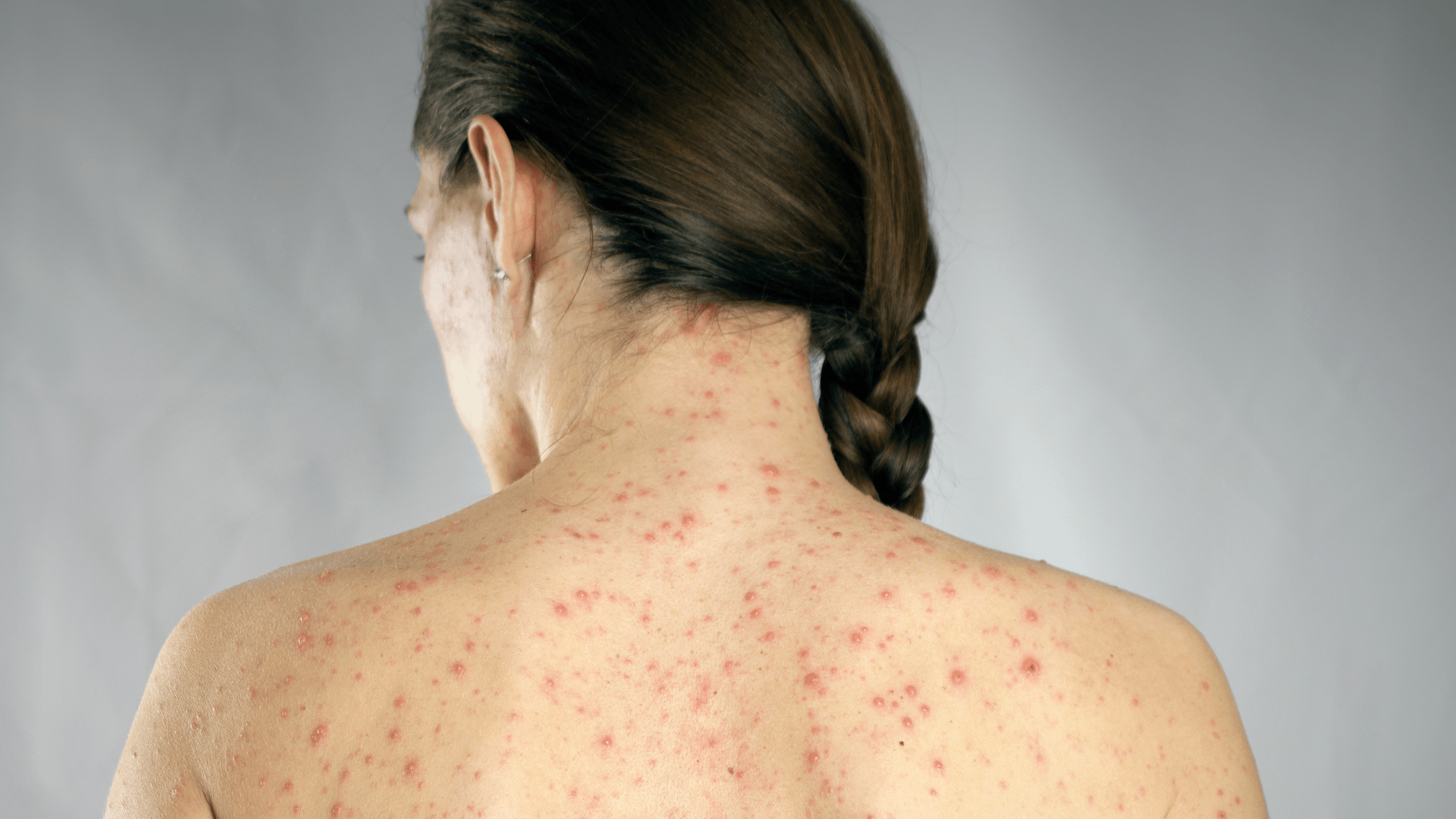Is it acne? Is it eczema? Or is it both? Acne and eczema are both inflammatory skin conditions, yet most often, they occur on different skin types. Eczema appears on dry skin, while acne is associated with oily and combination skin types. Despite this fact, some people wonder if they’re experiencing both eczema and acne. Is it possible? Today we’re exploring how eczema vs. acne appears on the skin and whether you can have both at the same time.
Eczema vs. Acne: How Is Eczema Different From Acne
Eczema and acne are both inflammatory skin conditions that involve bacterial imbalances in the skin microbiome. But they have different symptoms, causes, and treatments.
Eczema causes an itchy, flaking rash on the skin. While its exact cause remains unknown, it’s thought to be a combination of genetics as well as bacterial and environmental factors.
Acne, on the other hand, is caused by excess oil (or sebum) that clogs the pores on the surface of the skin. Excess oil can be a result of skin care choices, genetics, or hormonal factors. Acne shows up in the form of whiteheads, blackheads, cysts, nodules, papules, and pustules.
Having Acne and Eczema at the Same Time: Does Eczema Affect Acne?
You can experience both eczema and acne at the same time. However, the two conditions often don’t affect one another, because they typically occur on different locations of the skin. Because eczema is associated with very dry skin and acne is associated with very oily skin, they don’t often occur on the same area of the body. For example, you may have acne on your face but eczema on your hands.
While less common, it is possible to have both conditions in close proximity on the body. . For example, you could have acne on the T-zone of your face (forehead, chin, and nose) but have eczema on your cheeks. It’s also possible to experience both eczema and acne on your shoulders, back, or chest.
How Do You Treat Eczema and Acne at the Same Time?
Treatment options for eczema and acne vary greatly. When the skin conditions occur separately on different areas of the body, you can treat them individually.
Common acne treatments include retinoids, antibiotics, and (in severe cases) isotretinoin. On the other hand, eczema is often treated with moisturizers, topical prescription creams, phototherapy, and avoiding triggers, such as harsh chemicals in household cleaners, airborne allergens, and climates with extreme weather.
Experiencing both eczema and acne may be a sign of underlying imbalances in the skin microbiome and a weakened skin barrier.
You can restore your skin’s protective barrier by:
Moisturizing
Whether your skin is dry and eczema-prone or oily and acne-prone, moisturizing is key to a healthy skincare routine. Contrary to popular belief, oily skin doesn’t equal hydrated skin. By moisturizing immediately after showering or bathing, you’ll help the skin lock in the water content and strengthen your skin’s barrier.
Using Gentle Skincare Products
Harsh cleansers can alter the skin’s pH and bacterial balance... If you’re washing your face with a harsh soap, it’s time to switch to a gentle cleanser that helps to maintain the natural integrity of the skin. Opt for products that are fragrance-, paraben-, and sulfate-free. We recommend the Gladskin Face Wash and Makeup Remover.
Balance Your Skin Microbiome
Healthy skin (just like a healthy gut) needs a healthy balance of bacteria. Correcting bacterial imbalances in the skin microbiome is key to reducing inflammation and restoring skin health... Gladskin with Micreobalance® is designed to create an environment where good bacteria can thrive so your skin naturally produces everything it needs to stay healthy over the long term.
Gladskin's products are formulated for to balance your skin's microbiome, while Gladskin Eczema Cream was created specifically for people with eczema-prone skin. All of our products work with your skin, not against it, and without causing other unwanted side effects. What a relief.
Finding Your Way to Eczema- and Acne-Free Skin
Experiencing eczema or acne on their own is frustrating enough. Experiencing both at the same time can prove extra challenging. Be patient and kind to yourself, and consult with a board-certified dermatologist who can help you determine the best treatment for your unique skin.
